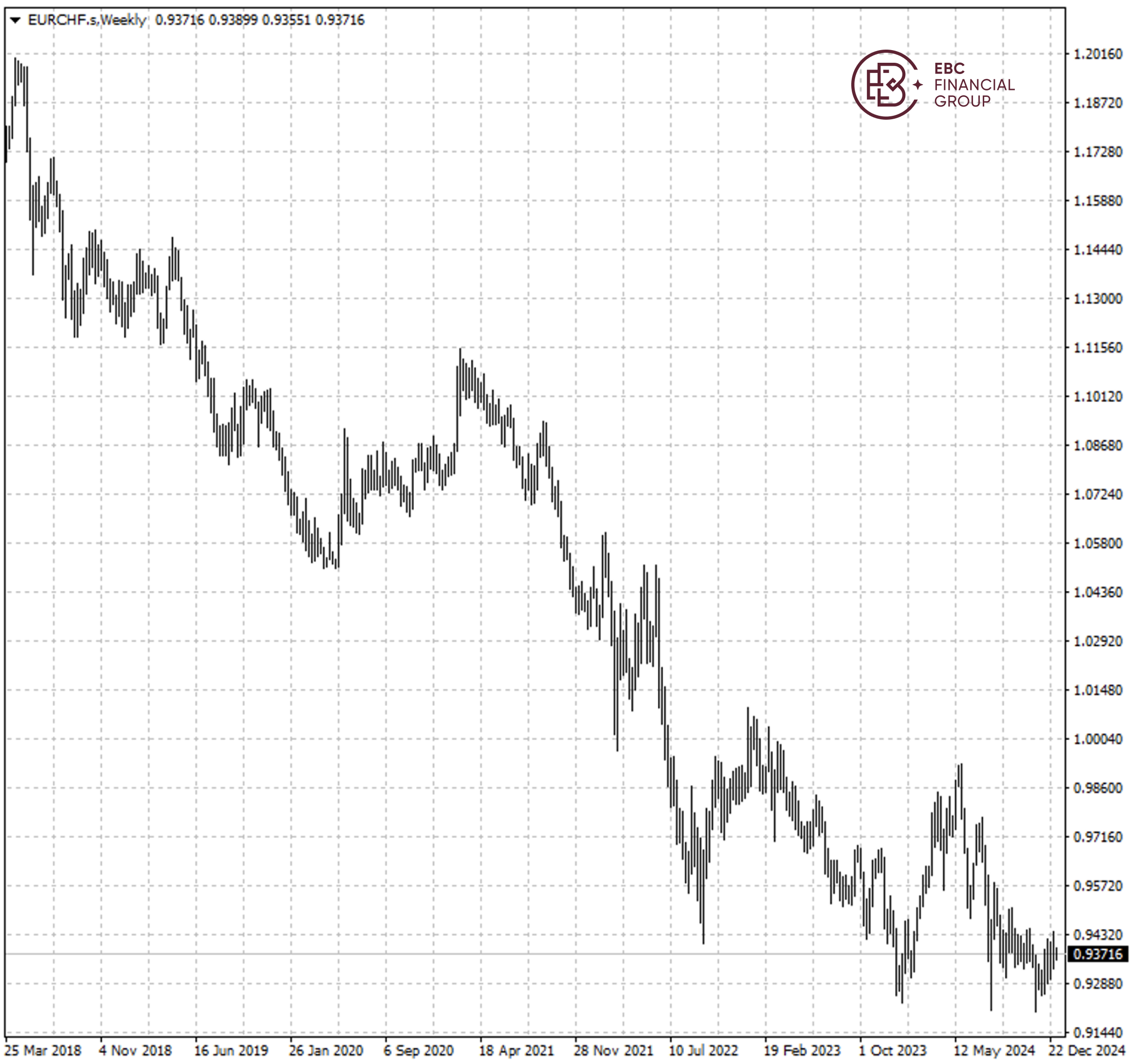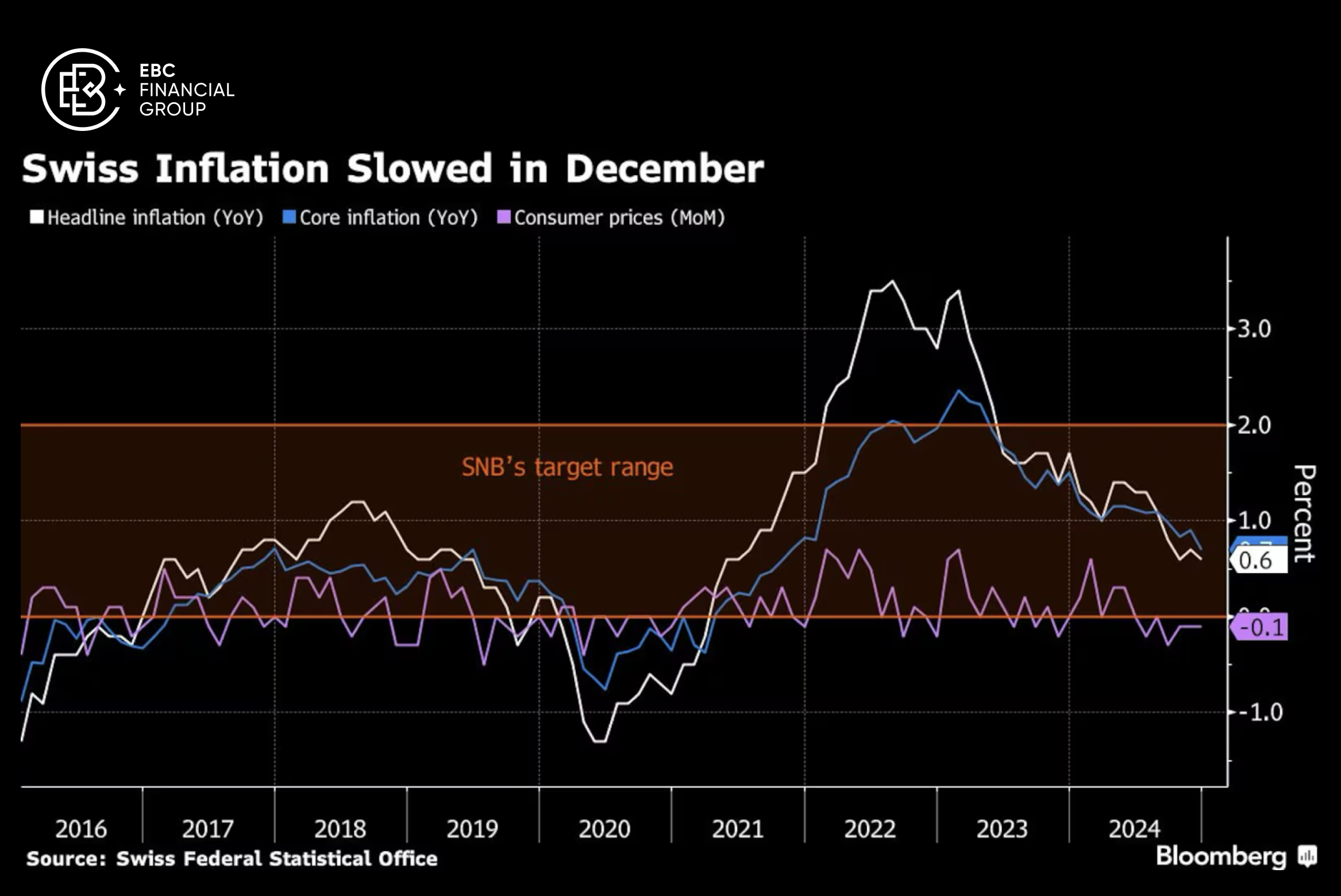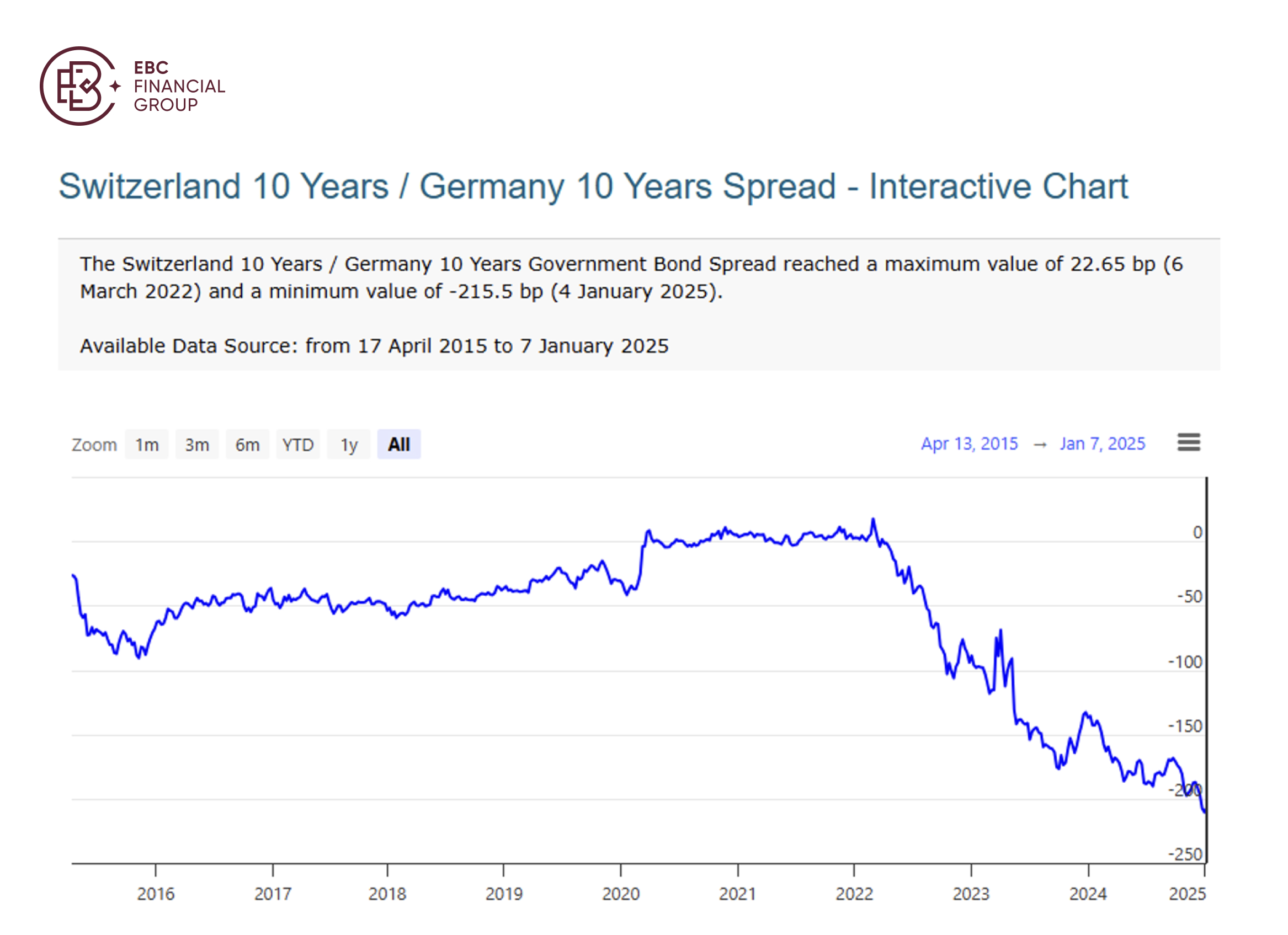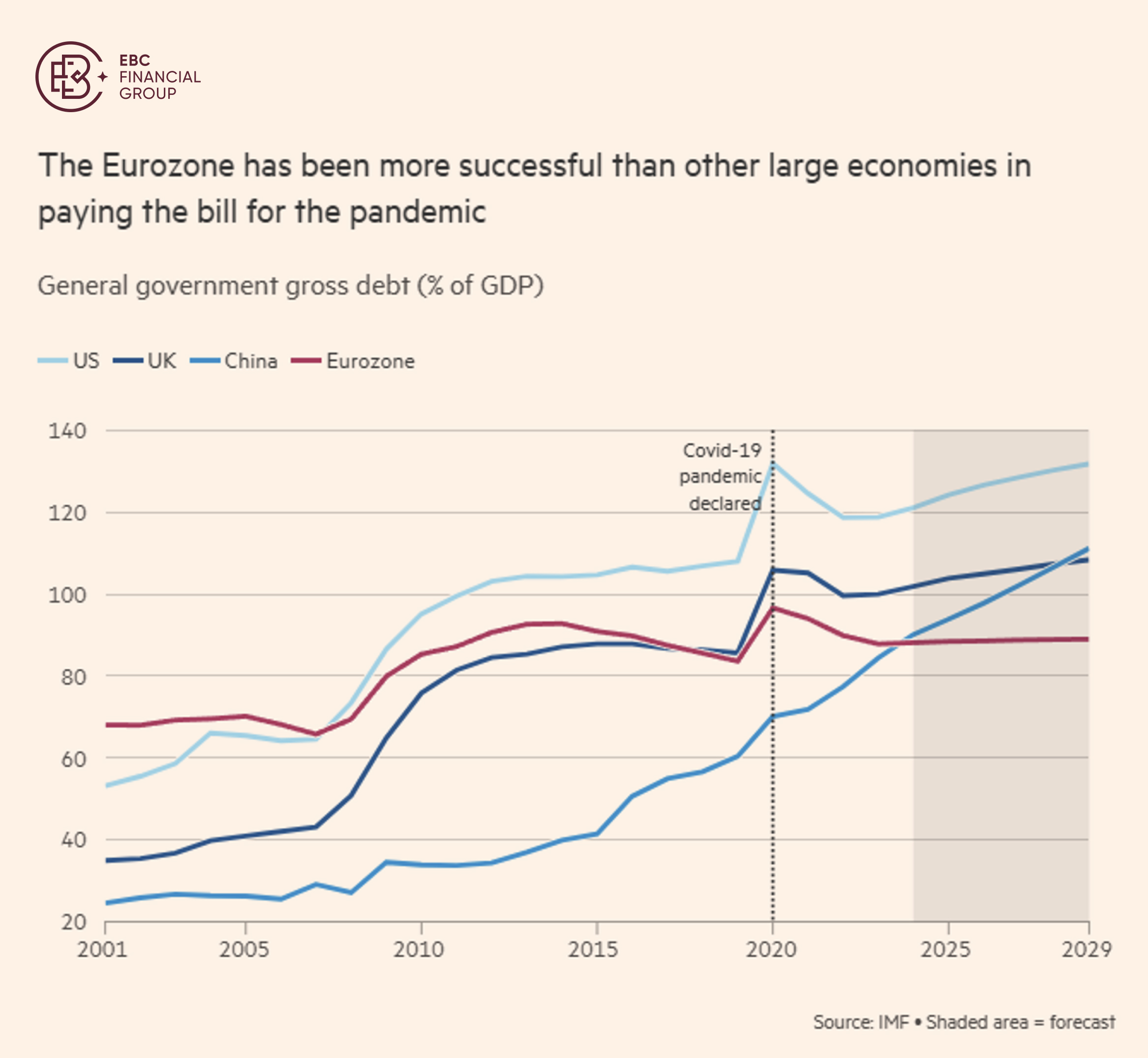EBC Markets Briefing | Will euro outperform Swiss franc again in 2025?
The euro registered its first yearly gain against the Swiss franc after Trump waged a trade war in 2018. Before the tariff man served his second term, Europe showed more solidarity than before.

Last month Switzerland and the EU unveiled a deal to carry out the biggest overhaul of their trade ties in years, overcoming Swiss concerns about immigration and setting the scene for an approval process.
Opposition to the EU has come on the right from critics warning about sharp population growth, and on the left from trade unions worried about wages coming under pressure.
The deal is a step forward from the last bid, which failed in 2021 with Bern’s abrupt pullout. It also delivers a boost to the bloc that tries to hold Europe together following the Brexit.
The EU accounts for over half of Swiss exports. The bilateral trade is now carried out under a 1972 free trade deal. Some accords have been obsolescent with some expiring as the EU updates its own regulations.
Swiss economy has outperformed its neighbours amid geopolitical tensions. UBS sees it growing in 2025 by 1.3% compared to 0.6% for Germany, 0.9% for France and 0.9% for the eurozone.
Still foreign demand is questionable as the deal is unlikely to provide a quick fix for problems in neighbouring Germany at the risk of entering a recession. Potential tariffs from the US are also perturbing.
Deflation fears
Trump’s administration may well again help increase the appeal of the Swiss franc but the SNB will definitely frown at a stronger currency that could elevate deflation risks this year.
The central bank cut interest rates four times in the past year as price growth slowed to a halt. Its inflation rate forecast for 2025 was revised down to 0.6% in October, compared with a previous outlook of 1.1%.

Deflation is Switzerland’s chronic headache. Consumer prices peaked at 3.5% during global inflation boom - a level much lower than 10.6% in the Eurozone – and the upsurge proves fleeting.
Former chairman Jordan signalled in Q3 that currency intervention could be used alongside interest rates “if necessary” to get a handle on prices, but did not commit to a timeline.

Yield spread between 10-year Bund and its Swiss peer has widened significantly from around 0 to over 200 bps since early 2022. Even so, the Swiss franc surged nearly 1000 bps against the euro during the period.
But continuing disinflation will likely benefit the eurozone where inflation rate reaccelerated to 2.4% in December. The ECB could have more room for easing to spur a recovery in the circumstance.
Energy costs are a likely driver of that trend. Israel and Hezbollah reached a ceasefire in late November – a step closer to the end of the war in Gaza – and Trump is going to encourage oil and gas drilling.
Fiscal restraint
Economists see fiscal stimulus as necessary to help the eurozone out of doldrums after Brussels has reinstated rules requiring member states to rein in budget deficits to a maximum of 3% of GDP.
While the member states have already cut back on spending more than the US and China, the bloc’s debt-to-GDP ratio is up from 83.6% in 2019 to 88.7% at the beginning of 2024.

That came as Germany is facing existential threats to its business model. The end of cheap Russian gas supply and an upended relationship with China makes the country a big laggard in Europe.
German Chancellor Olaf Scholz has lost a vote of confidence in parliament, paving the way for early elections on 23 February after a three-party governing coalition collapsed in November.
It will be more difficult for mainstream parties to form a stable governing coalition if the far-right AfD gains traction in parliament, which only complicates Scholz’s effort to ease debt rules.
The 2025 budget has also become a flash point in French politics, with opposition parties expressing sharp criticism of the measures proposed by the interim government.
Germany and France need to fix political fragmentation before embarking on the task of navigating structural economic challenges, which is the key to the euro’s performance going forward.
EBC Financial Risk Management Disclaimer: This material is for general information purposes only and is not intended as (and should not be considered to be) financial, investment or other advice on which reliance should be placed. No opinion given in the material constitutes a recommendation by EBC Financial News or the author that any particular investment, security, transaction or investment strategy is suitable for any specific person.





















